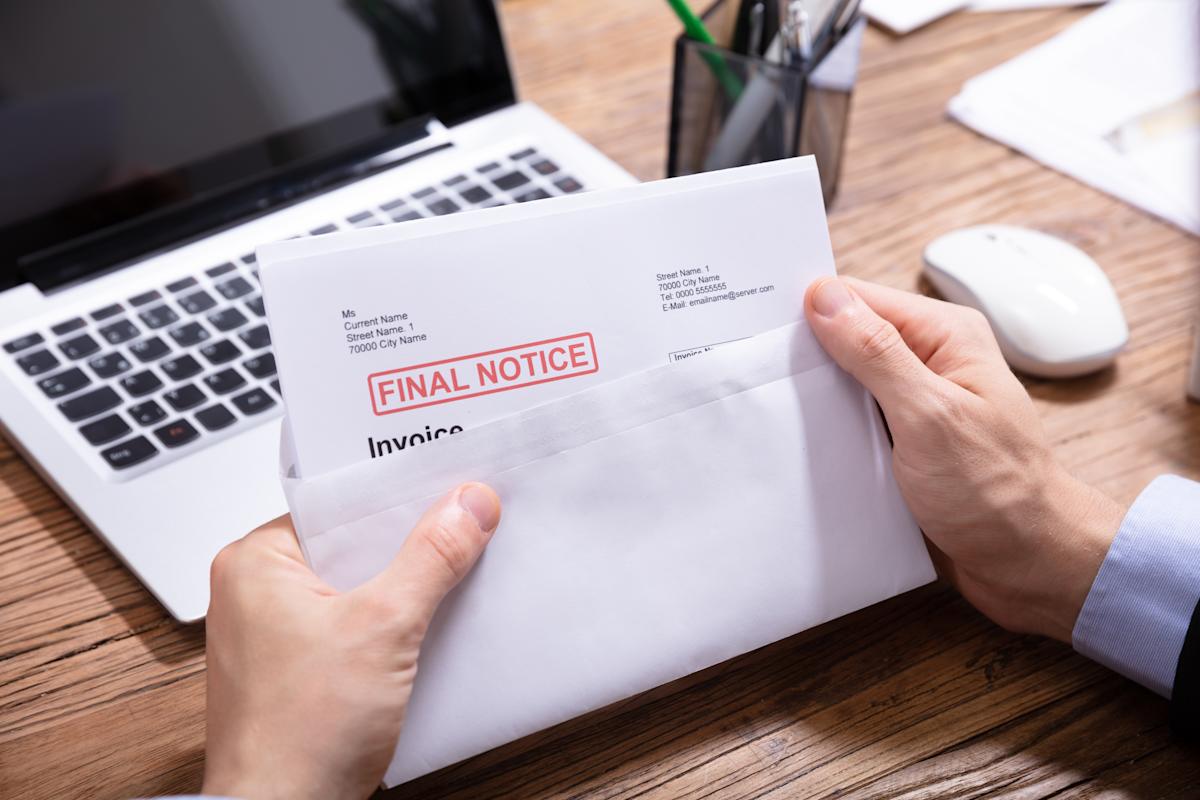It’s practically an annual ritual for homeowners: Around February, a letter comes in the mail detailing the results of your latest escrow analysis. If your account comes up short, you’ll have to pay up, either via a one-time payment or by spreading the sum over next year’s monthly payments.
Escrow account shortages are a poorly understood phenomenon in the US mortgage system, but they’re growing more common. The accounts hold money in reserve for property taxes and homeowners insurance that mortgage servicers — the middlemen that handle payment processing — pay on a homeowner’s behalf.
Taxes and insurance costs are rapidly rising in much of the country, resulting in many homeowners inadvertently underpaying those expenses. When those bills come due, owners can end up owing extra money if their escrow account balance isn’t high enough. What seems like a fixed mortgage payment can suddenly end up increasing, sometimes by over $100 a month.
The shortage notices — and subsequent bill increases — come as a shock to many homeowners, especially those already stretched thin by high home prices and mortgage rates near 7%.
“A lot of people see escrow as, you just forget about it,” said Lisa Araujo, a loan officer at Redmond Mortgage in Guntersville, Ala. “You’re trusting that it’s being taken care of.”
“We do need to talk about how taxes and insurance can go up as well.”
Read more: How does escrow work when buying a home?
Around 80% of mortgage holders have escrow accounts. They’re mandatory for any borrower putting down less than 20% to buy their home or using any type of non-conventional mortgage. Homeowners who are eligible to go without one are responsible for paying taxes and insurance on their own.
But while the accounts are common, they can be confusing for many homeowners. Lereta, a firm that provides tax services for loans, found in a survey last year that 28% of homeowners were somewhat aware or not aware at all that escrow changes could affect their monthly payments, and 53% of homeowners who received a payment increase were surprised by it.
When a homeowner gets an escrow shortage notice, rising property taxes are often to blame. Home values have increased rapidly since the pandemic, strengthening owners’ equity positions but also leaving them with steeper tax bills when their property values are reassessed. Some, but not all, states cap annual property tax increases, and how those caps work also varies.
“There are people who have had to give up their homes because of the appreciation they received,” said Mitchell Dunn, a Bowling Green, Ky.-based loan officer at Loan Factory.
Escrow shortages are one form of what are sometimes referred to as the “hidden costs” of homeownership, which include taxes and insurance, homeowners’ association dues, and routine maintenance costs.
Dunn counsels his clients to make sure their housing payment is below 25% to 30% of their monthly gross income, even though they may qualify for a bigger loan. “That will allow you to prepare for that rise in your mortgage payment,” he said.
With a fixed-rate mortgage, the portion of a payment that’s applied toward principal and interest technically doesn’t change over the life of the loan. The escrow portion is usually bundled with it into a single monthly payment.
Dawn Miller, who works for the Montana Department of Revenue, has seen firsthand how rising taxes have become a growing burden for many homeowners after prices exploded in the state. In Great Falls, Mont., where she lives, the median home was listed for $414,000 in April, up from $253,000 five years ago.
“I’ve had people come into my office and cry at my front office counter,” Miller, 54, said. “They don’t know how they’re going to pay a $2,000 tax bill.”
Her own taxes have gone up, too, which added to her monthly payment before she canceled her escrow account. She purchased her home nearly eight years ago, and initially paid around $875 a month. By last year, her monthly payment was up to $1,040, even after she made a separate one-time $800 escrow adjustment payment.
She had enough equity to opt out, so Miller now sets aside money for taxes and insurance in a high-yield savings account instead. Since she now pays those expenses separately, her monthly mortgage payment is down to $740.
“It makes it easier to budget,” she said.
Read more: How much money do I need to buy a house?
Escrow shortages can affect all types of homeowners, but mortgage lenders say they can hit those who recently purchased new construction homes particularly hard.
It can take a tax assessor a year or two to recognize the value of a home that was recently built on a once-empty plot of land. That means new construction homebuyers often initially pay taxes based on their land alone, and then find themselves with a big payment increase when their property is reassessed after a year or so of homeownership.
“If you’re buying new construction, you need to put money away,” said Jennifer Hughes Hernandez, a senior loan officer at Legacy Mutual Mortgage in Houston. “You need to figure out what your taxes are going to be — what they’re supposed to be — and realize that’s probably not what’s being collected in the beginning.”
Insurance is also a growing burden for many homeowners. In recent years, insurance premiums have been rising far faster than the rate of inflation as climate change increases the frequency and intensity of natural disasters and makes it harder for insurers to make money.
Homeowners facing a big escrow shortage may have luck lowering their payments by shopping around for new insurance, though lenders say it’s important for them to understand what kind of coverage they’re getting, as some cheaper policies may have higher deductibles or provide more limited protection.
Araujo, in Alabama, also recommends keeping an eye on annual tax assessments and servicer statements. Miscalculations can happen, and assessors usually allow homeowners to file protests.
Esther Thomas, a project manager in Huntsville, Ala., was shocked when she logged into her mortgage account and discovered a $3,600 escrow shortage on a home she purchased last year. But after further review, and several marathon phone calls with her servicer, tax assessor, and others, she learned that her taxes were miscalculated when she bought the home. She ended up receiving a check for $2,000.
“It’s so important to advocate for yourself,” said Thomas, 33. “I didn’t have $3,600 to give to anybody.”
But Thomas isn’t rushing to spend the windfall. Knowing her costs are likely to rise in the future, she’s setting aside the money for future escrow payments.
Claire Boston is a senior reporter for Yahoo Finance covering housing, mortgages, and home insurance.
Sign up for the Mind Your Money newsletter
Click here for the latest personal finance news to help you with investing, paying off debt, buying a home, retirement, and more
Read the latest financial and business news from Yahoo Finance






 Bitcoin
Bitcoin  Ethereum
Ethereum  Tether
Tether  XRP
XRP  Solana
Solana  USDC
USDC  Dogecoin
Dogecoin  Cardano
Cardano  TRON
TRON  Lido Staked Ether
Lido Staked Ether  Wrapped Bitcoin
Wrapped Bitcoin  Sui
Sui  Hyperliquid
Hyperliquid  Wrapped stETH
Wrapped stETH  Chainlink
Chainlink  Avalanche
Avalanche  Stellar
Stellar  Bitcoin Cash
Bitcoin Cash  Shiba Inu
Shiba Inu  LEO Token
LEO Token  Hedera
Hedera  Toncoin
Toncoin  Monero
Monero  Litecoin
Litecoin  WETH
WETH  Polkadot
Polkadot  USDS
USDS  Bitget Token
Bitget Token  Wrapped eETH
Wrapped eETH  Binance Bridged USDT (BNB Smart Chain)
Binance Bridged USDT (BNB Smart Chain)  Pepe
Pepe  Pi Network
Pi Network  Ethena USDe
Ethena USDe  WhiteBIT Coin
WhiteBIT Coin  Coinbase Wrapped BTC
Coinbase Wrapped BTC  Aave
Aave  Bittensor
Bittensor  Uniswap
Uniswap  Dai
Dai  NEAR Protocol
NEAR Protocol  Aptos
Aptos  Jito Staked SOL
Jito Staked SOL  OKB
OKB  Ondo
Ondo  BlackRock USD Institutional Digital Liquidity Fund
BlackRock USD Institutional Digital Liquidity Fund  Cronos
Cronos  Ethereum Classic
Ethereum Classic  Internet Computer
Internet Computer  Tokenize Xchange
Tokenize Xchange  Ethena Staked USDe
Ethena Staked USDe  Official Trump
Official Trump  Gate
Gate  Mantle
Mantle  Render
Render  VeChain
VeChain  Artificial Superintelligence Alliance
Artificial Superintelligence Alliance  Worldcoin
Worldcoin  Ethena
Ethena  Cosmos Hub
Cosmos Hub  USD1
USD1  POL (ex-MATIC)
POL (ex-MATIC)  Lombard Staked BTC
Lombard Staked BTC  sUSDS
sUSDS  Algorand
Algorand  Arbitrum
Arbitrum  Filecoin
Filecoin  Celestia
Celestia  Bonk
Bonk  Jupiter Perpetuals Liquidity Provider Token
Jupiter Perpetuals Liquidity Provider Token  Jupiter
Jupiter  Binance-Peg WETH
Binance-Peg WETH  Binance Staked SOL
Binance Staked SOL  Sonic (prev. FTM)
Sonic (prev. FTM)  Fartcoin
Fartcoin  Quant
Quant  KuCoin
KuCoin  Stacks
Stacks  Injective
Injective  Virtuals Protocol
Virtuals Protocol  Optimism
Optimism  NEXO
NEXO  Rocket Pool ETH
Rocket Pool ETH  Sei
Sei  Immutable
Immutable  USDT0
USDT0  Story
Story  dogwifhat
dogwifhat  Solv Protocol BTC
Solv Protocol BTC  Curve DAO
Curve DAO  Maker
Maker  The Graph
The Graph  Marinade Staked SOL
Marinade Staked SOL